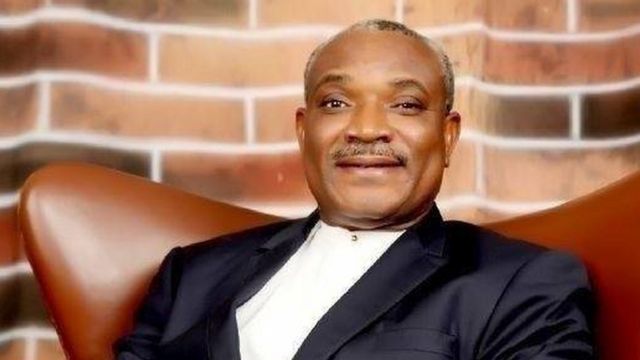Navigating Nigeria’s Political Landscape: Realignment Myths and the Federal Character Principle in Practice
An Insightful Analysis
By Chief (Barr.) Okoi Obono-Obla
Compiled by Titus Kyautah, Senior Reporter (North), Adeleke Reporters Online News
15th April, 2026
On April 14, 2025, Chief Obla featured on the TVC Network to discuss two pivotal issues dominating Nigeria’s political discourse: the so-called 2027 political realignment and the practical application of the Federal Character Principle in governance.
2027 Political Realignment: A Manufactured Myth
He made it unequivocally clear that the narrative surrounding a political realignment ahead of 2027 is largely a fabrication—an orchestrated move by certain political actors to generate undue tension and amplify their relevance in the political space. These individuals, in their attempt to appear as opposition forces to President Bola Ahmed Tinubu, are merely engaging in political theatrics.
There is currently no substantial indication of a unified merger among opposition parties to form a formidable national front capable of challenging the APC. Within Nigeria’s presidential system, the concept of political coalitions is not only unfamiliar but impractical. Coalitions, by nature, are more suited to parliamentary systems where governance depends on majority alliances, unlike our presidential structure.
The Federal Character Principle in Action
The Federal Character Principle, enshrined in Chapter II, Section 14(3) and (4) of the 1999 Constitution (as amended), serves as Nigeria’s moral and political compass—mandating equitable representation and fostering national unity. It states:
> “The composition of the Government of the Federation or any of its agencies… shall be carried out in such a manner as to reflect the federal character of Nigeria and the need to promote national unity…”
Likewise, at the state and local levels, government composition must recognize the diversity within each area, promoting a sense of belonging and inclusivity.
Opposition claims that the current administration has breached these constitutional provisions are unfounded. The Tinubu administration, in fact, demonstrates notable adherence to the Federal Character Principle across all three arms of government:
Executive: Ministers have been appointed from all 36 states. Permanent Secretaries are also drawn from across the Federation, ensuring fair administrative representation.
Legislature: The current leadership reflects national diversity:
Senate President – South-South
Speaker of the House – North-West
Deputy Senate President – North-West
Deputy Speaker – South-East
Judiciary:
Chief Justice of Nigeria – South-West
President of the Court of Appeal – Plateau State (North-Central)
Chief Judge of the Federal High Court – North-Central
Recent figures from the Federal Character Commission show a 55% representation for the 19 Northern states and the FCT, and 45% for the 17 Southern states. This demonstrates the administration’s commitment to equitable distribution and national balance.
Conclusion
The supposed 2027 political realignment is, at best, speculative fiction—an illusion driven by ambition, not facts. On the other hand, the Federal Character Principle remains a fundamental pillar in the structure of Nigeria’s governance. President Bola Ahmed Tinubu’s government has upheld this principle, ensuring fair and inclusive representation in line with constitutional mandates. These efforts are central to promoting unity, equity, and national cohesion—values at the heart of Nigeria’s democratic journey.
Chief (Barr.) Okoi Obono-Obla
Legal Practitioner & Public Affairs Analyst
For Adeleke Reporters Online News
Compiled by Titus Kyautah – Senior Reporter (North)https://youtu.be/b8vD3MZ6sIw?si=YiZ5bphqyxefWXqG



